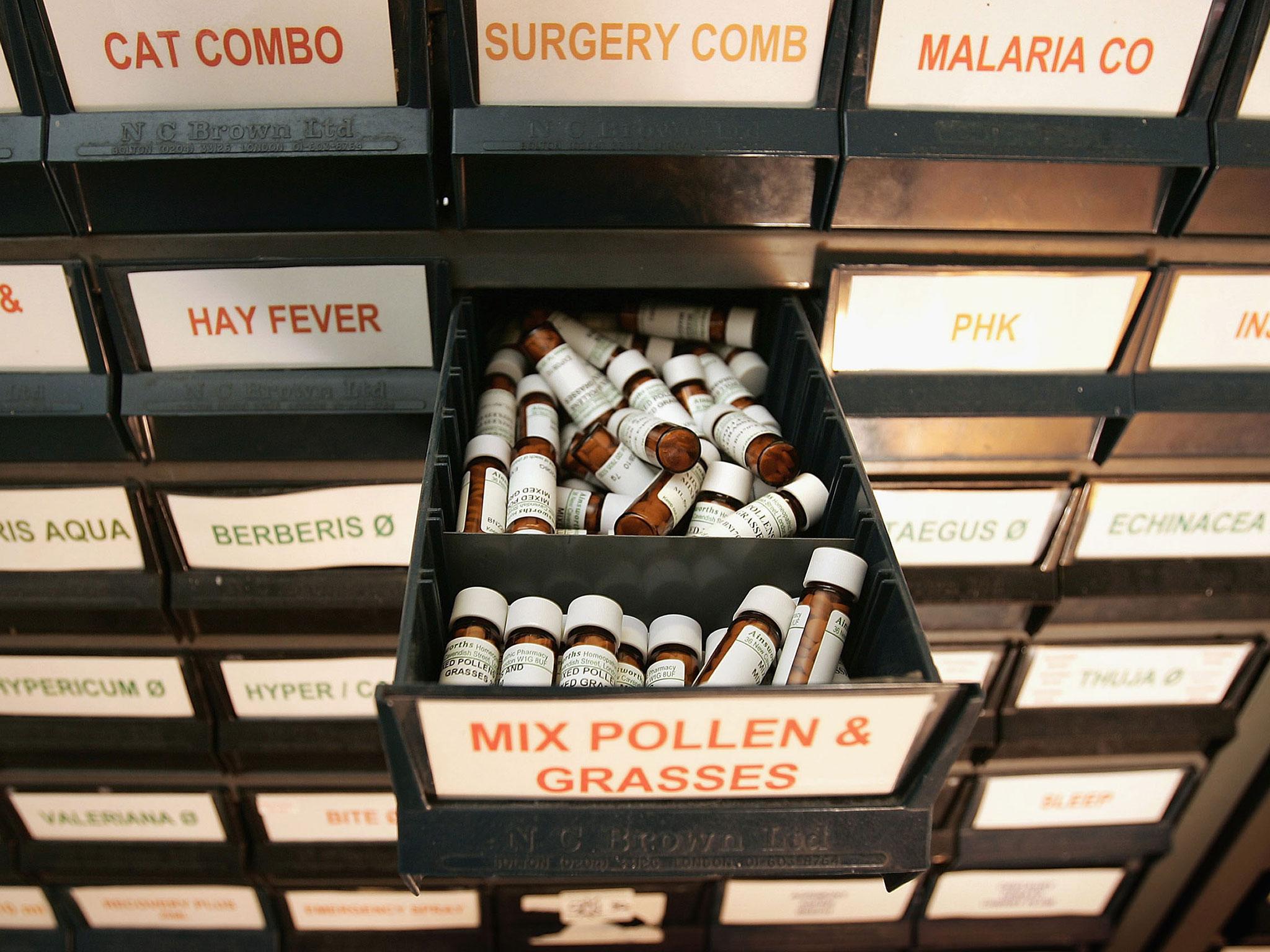Third of cancer patients use herbal remedies, chiropractors and alternative medicines, but many don't tell their doctor, study shows
Patients using alternative need to be informed about the ‘evidence which is largely negative and about the dangers which can be considerable’, says Professor Edzard Ernst

Your support helps us to tell the story
From reproductive rights to climate change to Big Tech, The Independent is on the ground when the story is developing. Whether it's investigating the financials of Elon Musk's pro-Trump PAC or producing our latest documentary, 'The A Word', which shines a light on the American women fighting for reproductive rights, we know how important it is to parse out the facts from the messaging.
At such a critical moment in US history, we need reporters on the ground. Your donation allows us to keep sending journalists to speak to both sides of the story.
The Independent is trusted by Americans across the entire political spectrum. And unlike many other quality news outlets, we choose not to lock Americans out of our reporting and analysis with paywalls. We believe quality journalism should be available to everyone, paid for by those who can afford it.
Your support makes all the difference.A third of cancer patients in a new study said they used herbal medicines, chiropractic massage or other alternative remedies, but many kept this secret from their doctor.
Of the cancer patients and survivors who said they used complementary or alternative medicines (CAMs), 29 per cent said they didn’t tell their doctor, the University of Texas-led study found.
There is no evidence that any alternative treatments can improve cancer survival. Though some treatments might improve quality of life, herbal remedies and certain diets can negatively interact with prescribed drugs or make them less effective, experts said.
Another recent study suggested that people who used CAMs were twice as likely to die from their disease, largely because they were more likely to refuse some or all recommended treatment.
“Given the potentially serious, adverse, and wide-reaching implications of CAM use (particularly use of alternative medicines) in patients with cancer, an accurate assessment of the prevalence of CAM use is needed,” the University of Texas researchers said.
UK complementary medicine expert Professor Edzard Ernst told The Independent that CAMs are not just a US phenomenon.
A recent UK study found 34 per cent of cancer patients use dietary supplements, some of which might interact with prescribed cancer treatments, Professor Ernst said. “We also know that many patients fail to inform their oncology team about this.”
He said some treatments might cause direct harm and others could interact with the prescribed treatments and might render them less effective.
Among the 3,118 current and past patients in the University of Texas study, published in the journal JAMA Oncology, more than 1,000 said they had used CAMs in the past 12 months.
Herbal supplements were the most common example, used by 35.8 per cent of the CAM users, followed by chiropractic or osteopathic manipulation of the spine or joints, used by 25.4 per cent.
Other therapies included yoga and massage (7.6 per cent and 14.1 per cent respectively). Acupuncture, special diets and homeopathy were each used by less than 3 per cent of CAM users.
While patients were more likely to disclose if they were taking a herbal remedy than if they were doing yoga, one in 10 supplement takers didn’t tell their doctors.
Among patients who did not disclose their CAM use, the majority said this was because their doctors didn’t ask or because they felt their doctors did not need to know.
Many patients said they were motivated to seek alternative treatments in order to seize control of their care or tackle persistent symptoms.
“Ignoring the popularity of alternative medicine is not a good option,” Prof Ernst told The Independent. He said responsible health practitioners need to specifically ask what their patients are using
“Subsequently they should inform them about the evidence which is largely negative and about the dangers which can be considerable.”
Join our commenting forum
Join thought-provoking conversations, follow other Independent readers and see their replies
Comments